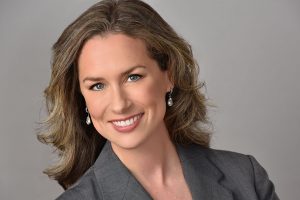by Amanda Quist
Published September 3, 2020
This installment of Canto appears in the September 2020 issue of EMAg, the Magazine of Early Music America.
 People have been singing together for thousands of years, and health crises are not new to the world. One of the most famous pandemics erupted in the 14th century and came to be known as the Black Death or Plague. People at the time searched for reasons that led them to blame certain ethnic groups, find strange cures and solutions, and grasp for ways to stop the spread. While the devastation from this recurring disaster was widespread and horrific, in the end music, gathering, and singing survived. For many, they likely aided in the emotional healing process.
People have been singing together for thousands of years, and health crises are not new to the world. One of the most famous pandemics erupted in the 14th century and came to be known as the Black Death or Plague. People at the time searched for reasons that led them to blame certain ethnic groups, find strange cures and solutions, and grasp for ways to stop the spread. While the devastation from this recurring disaster was widespread and horrific, in the end music, gathering, and singing survived. For many, they likely aided in the emotional healing process.
Today, we face another pandemic. We are spinning to find solutions, potentially drawing premature conclusions as to how to stop the spread and finding ourselves responding in similar ways. However, it is crucial to remember that the situation we are in is temporary; while horrible, it will not last forever. Health and safety concerns are at the forefront of our decision-making, but the solutions we create for this current situation need not create a “new normal.”
When I decided to pursue choral conducting as a profession, I never imagined that one day I would need to find avenues for choral rehearsals that would allow for social distancing or virtual meetings without personal contact, but we are facing an entirely new challenge in the arts due to the coronavirus. There are articles, webinars, and conversations circulating that point to research with varied conclusions regarding the safety of singing in groups. Some state it is a highly dangerous activity, some give credence to wearing masks and maintaining a certain distance, and some say it is no more dangerous than any other activity that involves indoor gatherings.
Choral conductors and singers are mourning our current situation and the challenges we face. As we are aware, choral music has become a formalized aspect of education in several cultures and is brought to the fore in colleges, universities, and professional groups around the world. It forms the glue for liturgy in religious settings, ceremony in institutional and social settings, and brings people together in their communities. Unfortunately, for those of us whose profession is in the arts, advocacy for musical study has become a necessity. The need to advocate never goes away, but now evidence suggests we need to be more vigilant than ever when gathering to make music. Writings dating back to the 1st century point to music as being what we would call a “core subject.” Today, this has changed. It has become less fashionable to attend religious services that may have encouraged the arts and musical skill as a necessity for worship. The pressures of test scores that are required for government funding for schools have shifted focus away from the arts and toward subjects that appear on tests.
I encourage all who choose to put information out there about choral singing to remember that the arts are always under great scrutiny. Before we print information about the current situation, I want to encourage us all to find solutions—not to compromise safety but to raise up the aspects of choral singing and music making that we can. It is difficult enough to remind people of the importance of music in regular times, so it is crucial for musicians to work together to protect art. When distilled, music and singing reflect what makes us human, a reality that no one can change, whether we are together or apart. We are still human, and we need connection.
Finding solutions to keep choral and instrumental ensembles functioning until we can safely be together again is more important now than ever so that the arts cannot be trivialized as educational institutions search for ways to make cuts. Otherwise, when the dust settles, it may be very difficult to get school ensembles and programs back into the curricular place they have enjoyed. We cannot allow institutions to trivialize something based on research that is only helpful for this short time when we need to adjust the way we sing. For many people, making music together is a primary way to feel most alive and find their inner spirit. This is a truth much deeper and more timeless than any pandemic the world has faced.
Amanda Quist is Director of Choral Activities at the University of Miami’s Frost School of Music. Her early music ensemble, Westminster Kantorei, was the 2018 winner of the American Prize for College/University Choral Performance. She is a regular lecturer and guest conductor throughout the U.S. and abroad, and her choral series is published through Walton Music.

